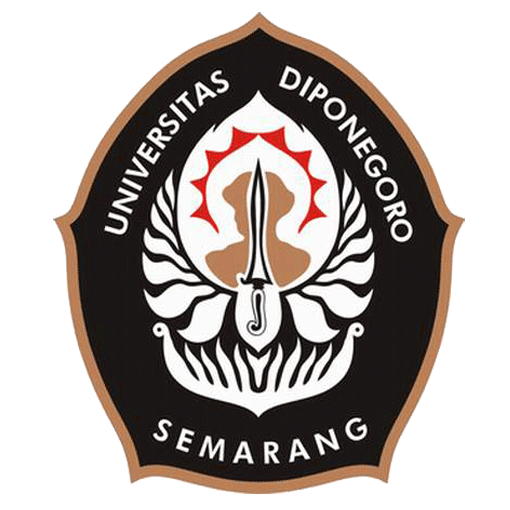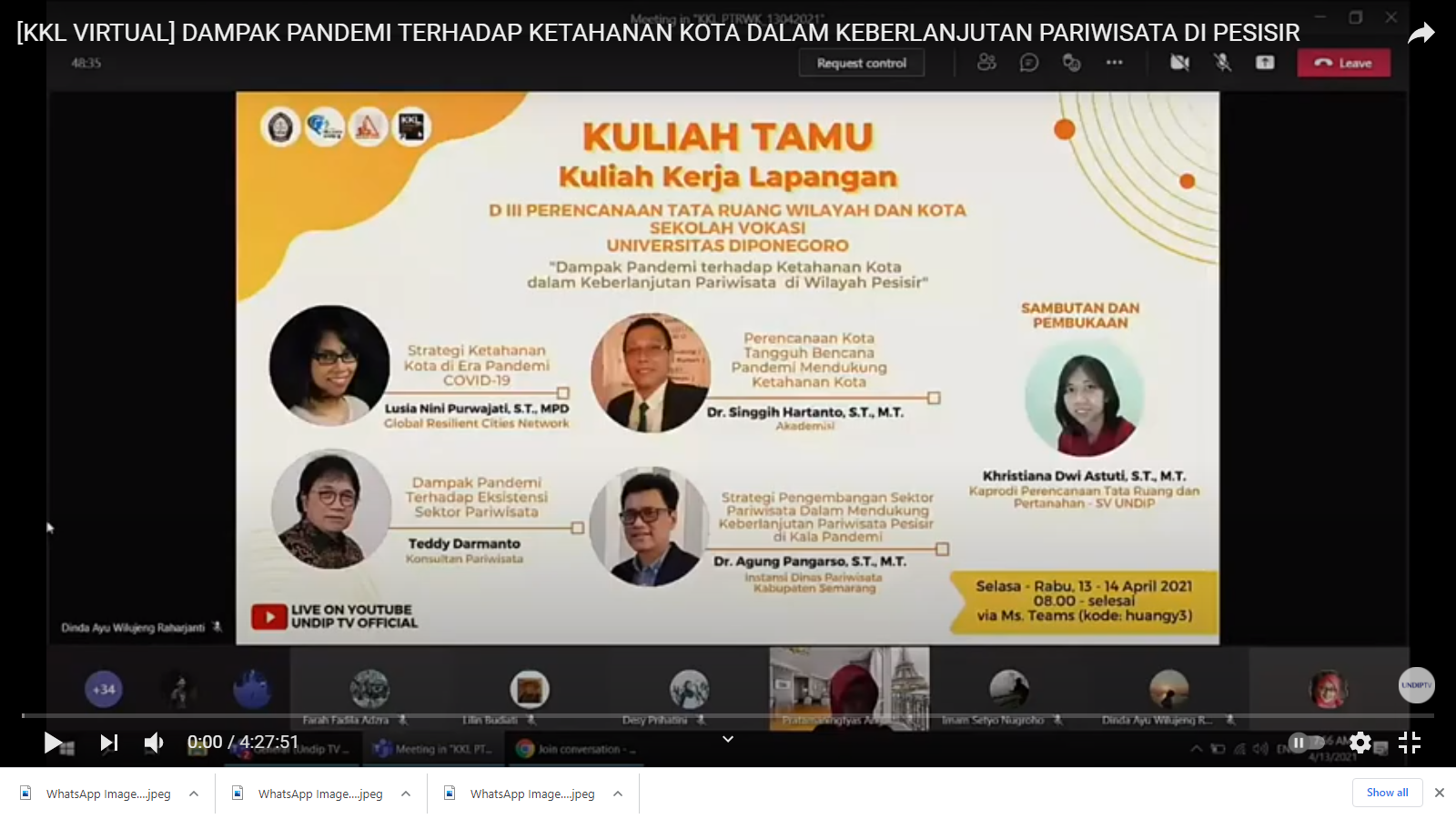SEMARANG – Urban and Regional Planning Vocational Students of UNDIP Vocational Schools continue to carry out their obligation of Field Work Lecture (Kuliah Kerja Lapangan) even though it must be done virtually. The virtual Field Work Lecture is started on Tuesday (13/4/2021) with the theme of “The Impact of a Pandemic on Urban Resilience in Sustainable Tourism in Coastal Areas”.
The decision to do a virtual Field Work Lecture is a strategy so that students can interact and be creative in applying their knowledge to the existing world of work. The application used to support Virtual Field Work Lecture of Urban and Regional Planning Vocational Students of 2018 which will be implemented from Tuesday to Wednesday on April 13th – 14th 2021 is Microsoft Teams. The Virtual Field Work Lecture is broadcasted live on Youtube Channel Undip TV Official.
The resource persons presented materials for students to understand the world of work are Lusia Nini Purwajati, S.T., M.PD. from Global Resilient Cities Network with a theme “City Resilience Strategies in the Era of Covid-19 Pandemic”; and Dr. Singgih Hartanto, S.T., M.T. as Deputy Chairperson of National Committee of Indonesian National Consultant Association (Ikatan Nasional Konsultan Indonesia /INKINDO) for Inter-Institutional Relations whose presentation entitled “Pandemic Resilient City Planning in Supporting City Resilience”.
The Head of Urban and Regional Planning Study Program of Undip Vocational School, Khristiana Dwi Astuti, S.T., M.T., had the opportunity to give the opening remarks. As for dialogue and material studies, the event was hosted by Urban and Regional Planning Vocational Student of 2018, Syifa Safira.
In the first session, Lusia Nini Purwajati conveyed the concept of Semarang City Resilience Strategy which she drafted with her team. She said that city resilience includes the capacity of individuals, communities, institutions, businesses and systems of a city to be able to survive, adapt and grow against continuous stress and major shocks it faces. In this context, Covid-19 is a cause of shock that transforms into stress.
Lusia added that urban resilience must be built as a system. She gave an example of a car factory built in Sakarya, Turkey that was designed with earthquake-resistant facilities so that when an earthquake occurs, the factory will survive. However, the area where the workers came from did not have earthquake-resistant facilities so that when the earthquake struck, damage will occur. This condition has an impact on factories that have earthquake-resistant buildings, to be unable to operate because their workers’ houses were damaged by the disaster.
Resilience is a step towards sustainability. Resilience (adaptation) turns into sustainability (mitigation). To the question of a student, Irvan Permana, regarding the condition of whether Indonesian leaders have responded to the Covid-19 pandemic, especially related with resilience of cities in facing the pandemic, Lusia answered by looking at how Indonesia distributes vaccines, the government is quite paying attention to the demographics of the population which has a large population of productive age. The government supports the world of tourism by giving vaccines to artists and tourism actors. This should be related to the demographics of Indonesia, where many of the population are of productive age, so they need support to make progress.
In Virtual Field Work Lecture, group discussions were also held virtually. After the presentation by the two speakers, participants were divided into several channels which were prepared for interactive discussions based on determined themes and guided by the lecturers. The interactive discussion lasts for 20 minutes and after finishing the discussion, each of them reports the results of the discussion in each discussion channel. With fewer participants, the discussion was more lively and interactive.
There are two cases raised in the discussion, namely the case in Karimunjawa and West Nusa Tenggara which is dissected with the theme “Indicators of Resilience and Sustainability of Tourism in Coastal Areas”. Several things are identified as efforts to keep tourism running in the midst of pandemic, such as requiring a Covid-19 free test before entering Karimunjawa and West Nusa Tenggara, reducing capacity of passenger transportation to only half of normal conditions, promotion through video and photo competitions, and limiting the number of tourists.
For example in Karimunjawa, it only allows 100 people and they must bring their own diving and snorkeling equipment, not borrowing; while children, pregnant women and the elderly are prohibited from entering, and strict implementation of the health protocols. West Nusa Tenggara has implemented health protocols based on CHSE: Cleanliness, Health, Safety, and Environment Sustainability. For hotels and restaurants that are closed, their tax payments are exempted until March 31st 2021. (PR team)
Translated by: Titis (Public Relations)

